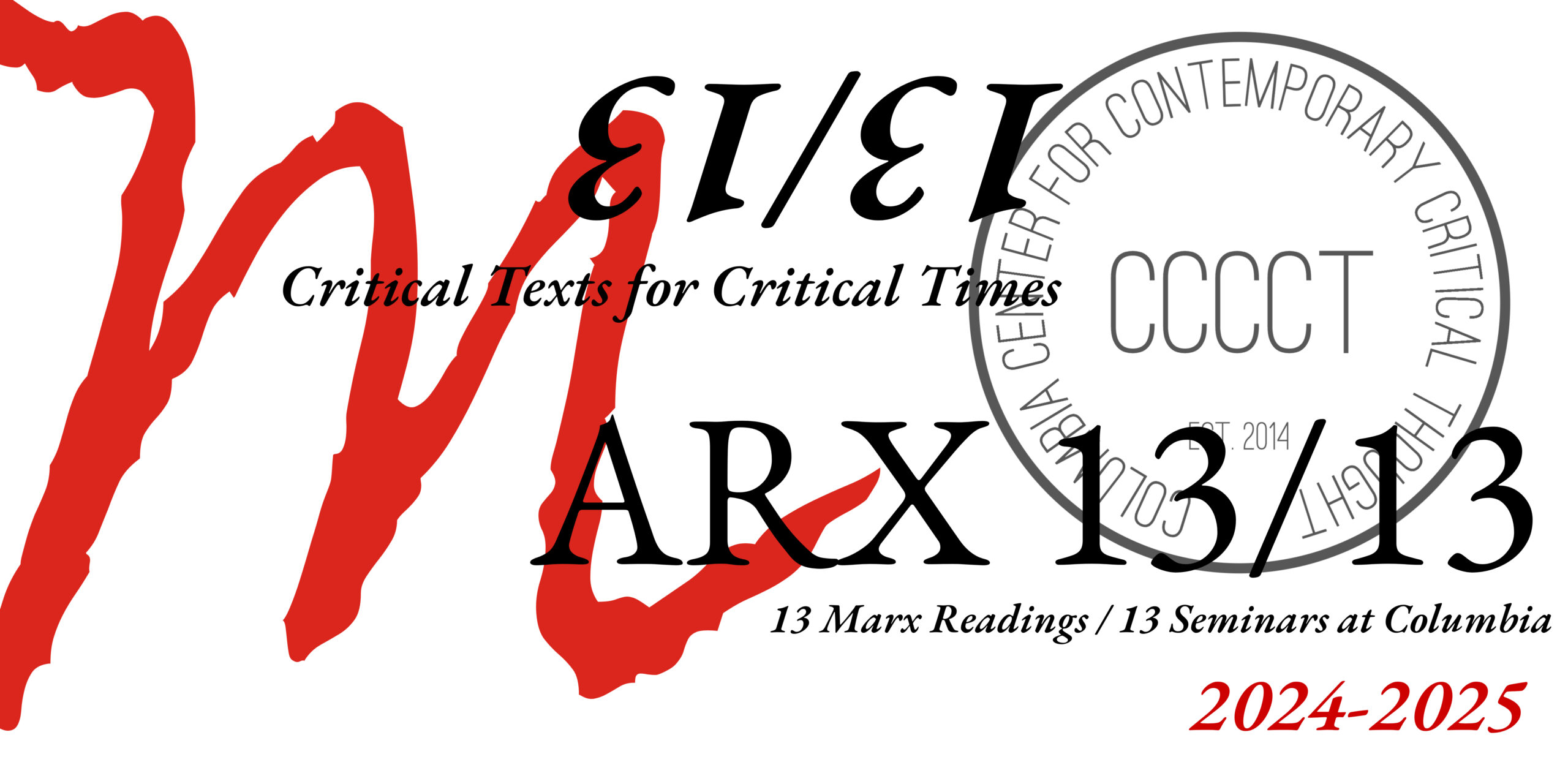Watch the full-length introduction to Marx 7/13:
Watch Gayatri Spivak at Marx 7/13:
The philosopher Gayatri Chakravorty Spivak reads and discusses
Marx’s The Class Struggles in France 1848-1850 and W.E.B. Du Bois’s Black Reconstruction in America
Wednesday, January 29, 2025
Columbia University, New York
In a series of articles published in the Neue Rheinische Zeitung in 1850, Marx offers a sweeping historical account of the French revolution of 1848. Marx theorizes at the same time as he recounts history, and vice versa: he confronts theoretical insights and hypotheses with historical developments, statistics, economic research, and first-hand accounts. The articles are political, engaged, opinionated, often satirical and witty, biting at times, punchy, and rallying. Reading them, one senses that they are a call to revolution.
In the articles, collected by Engels and published in 1895 under the title Class Struggles in France 1848-1850, Marx develops a central thesis: the French revolution of 1848 may not have brought about the emancipation of the proletariat, but it turned the proletariat into a more self-conscious class, into a “real revolutionary party.” All the wins and the many more losses of the workers—and their defeat in the bloody June days of 1848—gave birth to a revolutionary working class. The February Revolution effectively created a counterrevolutionary front that helped crystalize the workers into a revolutionary party. What was defeated, Marx asserts, was not the revolution, but instead “the pre-revolutionary traditional appendages” that had not yet sharpened into real class struggle. That would only happen, Marx maintained, “not by the victory of February, but only by a series of defeats.”
W.E.B. Du Bois, in his magisterial Black Reconstruction in America, returns to Marx’s analysis of class conflict to understand the postbellum era. Black Reconstruction in America can be read through the lens of Marxian class conflict, which, in Amy Allen’s words, “renders the emancipation of slaves as the first successful workers’ revolution, prefiguring the Bolshevik revolution by more than 50 years. This claim follows directly from the argumentative backbone of DuBois’s text whereby the slave becomes the black worker, the slave rebellion a general strike, the Reconstruction Era the dictatorship of the proletariat in the states of the former Confederacy, and the subsequent dismantling of Reconstruction as a counterrevolution of property.”
Few scholars have worked more productively on the relationship between Marx and Du Bois than Gayatri Chakravorty Spivak, who dedicated her Du Bois lectures at Harvard and her forthcoming book from those lectures to Marx and Du Bois. Gayatri Chakravorty Spivak, University Professor at Columbia University and a founding member of the Institute for Comparative Literature and Society, is a preeminent expert on Marx and Du Bois, and is also an activist in rural education and feminist and ecological social movements since 1986. It is a privilege to welcome Gayatri Spivak back to these 13/13 seminars to discuss and read Marx’s Class Struggles in France 1848-1850 in conversation with W.E.B. Du Bois’ Black Reconstruction in America.
Welcome to Marx 7/13!

Henri Félix Emmanuel Philippoteaux (1815-1884). “Lamartine repoussant le drapeau rouge devant l’Hôtel de Ville, le 25 février 1848”. Musée des Beaux-Arts de la Ville de Paris, Petit Palais.
